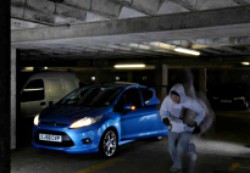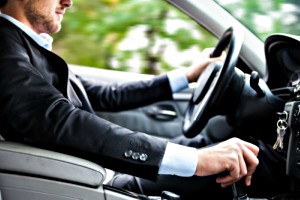Last year, figures gathered by RAC showed there had been an astounding 30% rise in car thefts in England and Wales between 2013 and 2016.
 As the years have progressed, car manufacturers have been evolving with their latest security and safety features. However, the thieves who are targeting them have been too. Many have upped their A-game by creating sophisticated techniques aimed at bypassing vehicle anti-theft devices.
As the years have progressed, car manufacturers have been evolving with their latest security and safety features. However, the thieves who are targeting them have been too. Many have upped their A-game by creating sophisticated techniques aimed at bypassing vehicle anti-theft devices.Don’t be alarmed! We have some steps you can take to reduce the likelihood of you becoming a victim of car theft.
1. Be an obsessive checker
- Checking after you’ve locked your car is a MUST, this includes every door (including the boot) – this reassures you the car has definitely been locked.
- Some vehicles have an audible or visual signal, whilst others will feature ‘pins’ on the inside of the windows – these lower when the doors have locked.
- Don’t rely on your key fob. Thieves use ‘jammers’ to disrupt the signal between the fob and the car – this results in an unlocked vehicle. Look out for these jammers; thieves can leave them in their pocket or in the bushes of a car park.
- Tracker revealed that 96% of motorists are at risk of their car being stolen due to a ‘relay attack’.
- What is this? It involves two criminals working together using electronic signal relay devices. One criminal uses a device to receive the key signal from inside the home, transferring the signal to a second box, which is placed alongside the car. In effect, tricking the car into ‘thinking’ the key is there, allowing thieves to unlock it and drive away.
- How can you avoid this? The signal can pass through doors, walls and windows. Although, they cannot penetrate metal, so putting your keys in a metal box will protect your vehicle!
- Don’t park in the first spot you see – we understand if you are in a rush, however, this isn’t always the safest option for your car. Instead, find a well-lit and open to public view place.
- Choosing a car park that is either security-patrolled or covered by CCTV can work in your favour.
- When you park up, take any belongings with you. Leaving behind your belongings can be a temptation for any criminal to break in.
- If your stereo has a front panel which enables you to take it out and it stops working – make sure you take this with you. Or if it has a cover, use this to conceal your stereo from view.
- Majority of cars nowadays have a factory fitted immobiliser, however, we suggest adding a Thatcham-approved car alarm. It can reduce your car insurance premium as well as the risk of car theft.
- Fitting a tracking device won’t prevent your car from necessarily being stolen, however, this increases the chances of recovery and it is returned by the police.
- Adding a visual deterrent can be your ultimate best friend when it comes to avoiding car theft – as thieves are opportunistic, and they may pass on a car that looks like too much hard work.
- Include features like a sturdy lock on the steering wheel, pedals or gearstick and having your car’s registration plate number etched on the windows – it’s old school, but it works.
- Due to the great evolution of cars, stealing car keys has become a major thing for car thieves.
- Therefore, we suggest to never leave your keys unattended in public and even when you are at home – keep them both out of sight and out of reach.
- Keep your logbook, service records or any other important documents (e.g. letters, bank statements, etc.) at home in a safe place. As if you’re a victim of car theft, the documents will make it easier for the car to be sold and you could also become a victim of identity fraud as well.
- Alloy wheels can be a target for thieves, so keep your alloys protected with locking wheel nuts – these are inexpensive to buy, easy to fit and can’t be easily removed without the correct key.
- It is definitely a temptation to leave the car running on a cold icy morning, but this is an increased risk of car theft and also a fine too (if you are de-icing on a public road).
 We hope this gives you peace of mind when leaving your car unattended and take some of our suggestions into consideration.
We hope this gives you peace of mind when leaving your car unattended and take some of our suggestions into consideration.For more CarCliq guides click here.